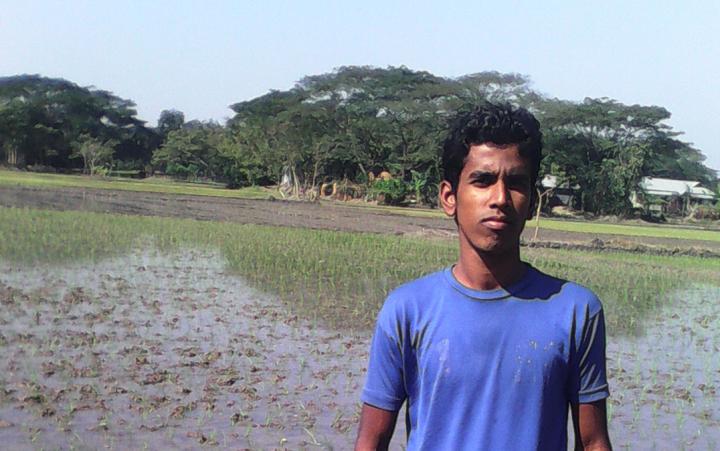Study shows randomized Bangladesh-based trial of training in agronomy method has advantages for rice output and profits, as well as for the rice farmers’ lives

Credit: BRAC, Bangladesh
Tsukuba, Japan – Rice is the world’s most commonly grown and consumed crop. It also supports lives and livelihoods, especially in low- and middle-income regions. As such, methods for securing abundant and profitable rice harvests are key in global food security.
The System of Rice Intensification (SRI) offers a repeatable, sustainable system for increasing rice yields. It brings together fundamental planting and harvesting techniques such as strategically spacing plants, minimizing water, and transplanting seedlings. These practices can be repeated in varying conditions. While SRI has been around since the mid-1980s, need persists for evidence to back its merits and distinguish its techniques.
New findings published in the American Journal of Agricultural Economics now give much-needed evidence of SRI, following its diffusion to more than 5,000 Bangladeshi farmers. SRI training was introduced and evaluated among the rice farmers in a similar manner to a randomized controlled trial (RCT) in medicine. Certain communities were trained while others were not. This created a pure control group, similar to those who receive a placebo or receiving nothing in an RCT. That in turn allowed compelling comparisons, along with insights into related effects of the training.
Professor Abdul Malek of the University of Tsukuba (Japan), together with international colleagues including Asad Islam (Monash University), Christopher Barrett (Cornell University), Marcel Fafchamps (Stanford University), and Debayan Pakrashi (Indian Institute of Technology Kanpur), conducted these randomized introductions of SRI in Bangladesh and studied them from agricultural and social angles. The core of the researchers’ work was two RCTs in 2014-2015 and 2015-2016.
“To a large degree, we already know SRI delivers good yields, among other advantages. Some have, however, questioned its uniqueness and results, so there is continued need for evidence to support it,” Professor Malek says. “By randomizing a large cohort of farmers, we have been able to look at both SRI’s quantifiable economic benefits and the qualitative benefits of disseminating this agronomic training and knowledge.”
Among the results, SRI led to rice yield and profit increases of 14%-17% and 22%-31%, respectively. Household well-being was also found to be higher for farmers in training communities vs. those without training. Additionally, a spillover effect was seen as untrained farmers in training communities also gained exposure to SRI practices.
In two previous studies published as Fafchamps, etal (2021 and 2020) available at respectively: lhab009, https:/
, Professor Malek and colleagues elaborated on these knock-on benefits of this training. His research teams used the trials to show (1) the efficacy of introductory referrals to training and (2) the cost advantages of peer-to-peer transmission of knowledge acquired. The latest work corroborates the overall findings in a broader scope to give valuable evidence of training and of SRI itself.
“We’ve covered a great deal of ground in verifying how SRI boosts productivity and farmers’ well-being,” Professor Malek says. “We’ve also seen how knowledge is transferred among trained farmers. This may help settle intense debates around SRI as a tool for boosting rice productivity and rice farmers’ well-being. It also offers a great deal of promise for agronomy in the Global South.”
###
The article, “Experimental Evidence on Adoption and Impact of the System of Rice Intensification,” was published in the American Journal of Agricultural Economics at https:/
This study and the previous two studies received two successive grants from the International Growth Centre (grant numbers 1-VCA-VBAN-VXXXX-3111 and 1-VRC-VBGD-VXXXX-89309). Support was provided for field work, training, and surveys that were conducted by BRAC. The authors declare no competing interests.
Media Contact
Naoko Yamashina
[email protected]
Related Journal Article
http://dx.




